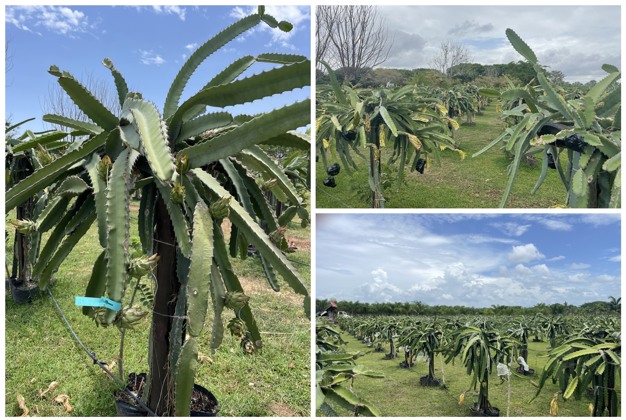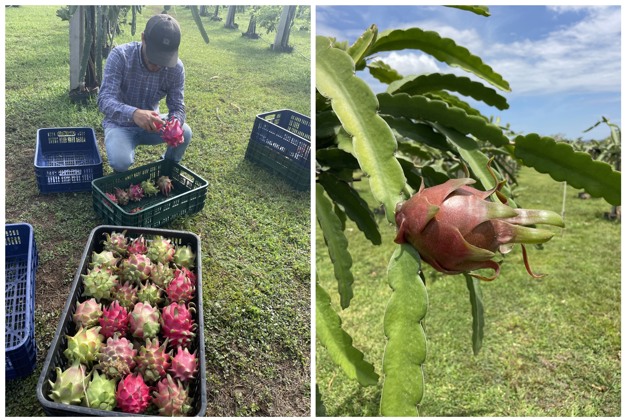Jardines Urbanos, a Panamanian company with 20 years of experience in the agricultural sector, has decided to bet on the production and future export of pitahaya, says General Manager Xavier Mora.
The company, which was initially focused on the production of grass for sports fields and residential areas, has diversified its activity in the last five years with the introduction of pitahaya. "We started with half a hectare in 2019 and we currently have seven hectares, four and a half of which are now fully productive," says Mora. The pandemic slowed down their expansion, but in 2021 they started to grow again and are now looking to the international market, particularly Europe and Asia.

Although Jardines Urbanos has not yet started exporting, Mora says that the company plans to start exporting in 2025. "We expect to produce around 35 tons of pitahaya next year, and by 2026 we plan to reach 60 tons. However, not all of it will go to the international market; the domestic market also plays an important role in our strategy," he says.

The pitahaya they produce is of the red variety, with varieties such as the Lisa, Cebra and Orejona. Despite not yet having international certifications, Jardines Urbanos is in the process of obtaining them, prioritizing standards such as GlobalG.A.P. to be able to gain access to the European market. "We will participate in fairs such as Fruit Attraction in Spain, where we'll be present at the Propanamá hall (Hall 4: stand 4E17). The goal is to become better acquainted with the market requirements and make progress in obtaining the necessary certifications," he says.
According to Mora, Panama not only offers suitable climatic conditions for pitahaya production, but also soils with ideal characteristics. "We are located in the Arco Seco of Panama, which gets less rainfall and plenty of sunlight, despite being in a tropical area. This facilitates the fruit's optimum development," he says. These conditions, combined with soils that are perfectly suited to pitahaya cultivation, are allowing Jardines Urbanos to produce quality fruits that stand out for their vibrant colour and sweetness. These qualities have sparked growing interest in international markets. "Our main production period runs from May to October, with peaks in June and July, and we are confident that our fruit will stand out for its taste and appearance," says Mora.
The next big step for Jardines Urbanos will be to consolidate its exports. These will be carried out mainly via air freight, although they are not ruling out resorting to maritime transport, depending on the demand. "We are still looking into the best possible logistical strategies, but we are sure that our pitahaya will find a good place in the international market," says Mora.
Jardines Urbanos is getting ready to compete with large Asian and South American producers, offering a quality Panamanian product, and hoping to put pitahaya in the spotlight on the global stage with its project to start exporting in 2025.
For more information: 
Jardines Urbanos
Xavier Mora
Tel.: + 507 6670-0985
[email protected]
www.jardinesurbanos.com










